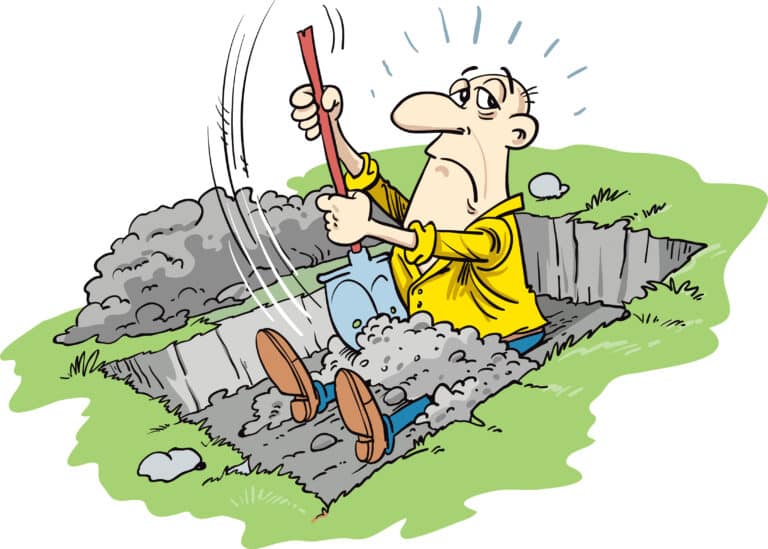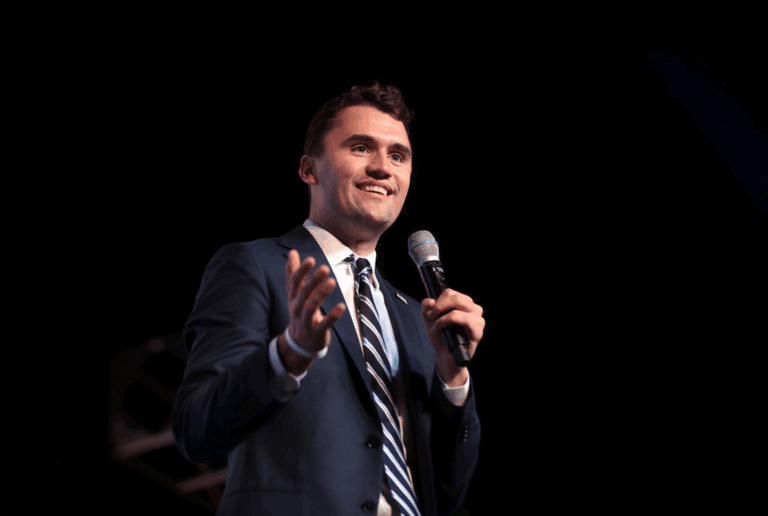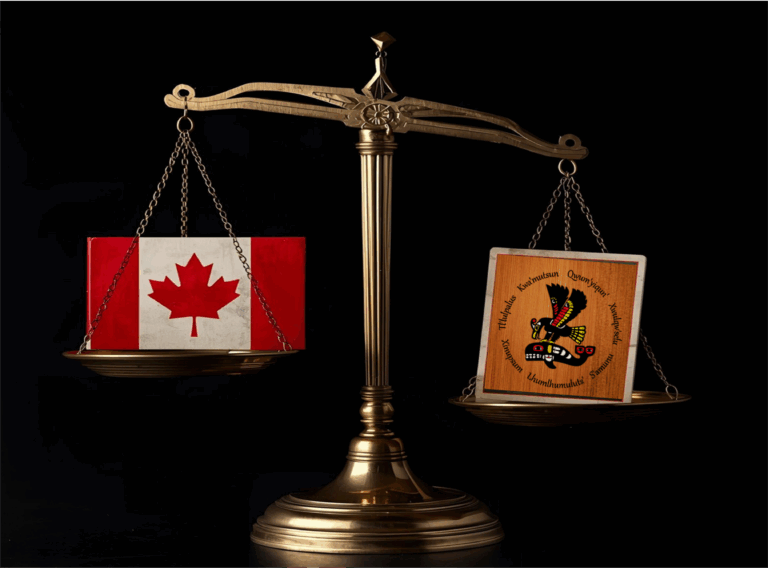Let’s face it, it’s very likely going to be a four-year Liberal minority government. The NDP doesn’t want another election anytime soon – they’re beyond broke – and the enlarged and energized Bloc Québécois are as happy as pigs in mud the way things are. The interregnum gives the Conservative Part of Canada (CPC) an opportunity to re-evaluate its leader and its most recent campaign – and plan for significant improvements in both.

There will be pleas to give leader Andrew Scheer another chance, and if the Liberal minority were less stable, it might be prudent to keep him in place in case of an emergency. It was his first election leading a federal campaign, it has been said; he’s only been leader for two years. Okay, but it was two wasted years. Scheer did too little to craft a coherent overall message or create a compelling image of himself in that time, allowing the Liberals and the NDP to do it for him in a short election campaign. He didn’t advance any strong reasons for Canadians to vote for him, rather than merely for a somewhat conservative party or against Trudeau. His dual-citizenship hypocrisy and resumé padding will follow him into the next election campaign with the taint of being “no better than the others.”
For a man who wants to be prime minister, he also proved an oddly low-energy campaigner. Among several quirks, Scheer didn’t even campaign on Sundays, and his team didn’t make use of high-profile deputies to cover for him during his absences from the trail. This predictable downtime allowed the Liberals to level their smears late on Saturday afternoons, so that they festered until Scheer made an appearance at noon Monday. This is unacceptable. A political leader must make himself or herself available 24/7 during a campaign.

Time and again Scheer proved mealy-mouthed, inept, and dissembling – appearing unsure of or apologetic for his own values and principles. Scheer’s firing of MP Michael Cooper from the Commons Justice Committee last spring for his defence of conservatives regarding the Christchurch mosque shooter, and Scheer’s refusal to condemn the outrageous attacks by masked Antifa thugs on a helpless disabled senior attending a PPC rally in Hamilton in late September, added to growing concerns that Scheer is weak, unprincipled and opportunistic.
His strange inability or unwillingness to clearly answer certain simple questions, when combined with the other questions about his character, reduced his trustworthiness and likability. It is shocking that he did not have responses prepared for the obvious attacks that would come over his public statements on same-sex marriage and abortion – especially since good responses were readily at hand. True, the news media hammered him mercilessly and unfairly over this. But what else is new? Virtually all small “c” conservative politicians are subjected to this treatment. It’s entirely predictable.
Scheer should have fulsomely apologized for the insensitive analogies he employed in his rejection of same-sex marriage laws years ago. And then he should have turned the tables on his accusers. How could Scheer not have known that Ralph Goodale and Justin Trudeau had held exactly the same views as him at the time? Why didn’t he quote their own statements back at them? Those drive-by smears should have been turned into two own-goals against the Liberals. Fumbling the ball like this was endemic to the 2019 CPC campaign.

But Scheer’s failings were not simply tactical; his biggest mistakes revealed a failing of character, which he is highly unlikely to change in four years. Scheer is too timid, too insecure in defending conservative ideas, too lacking in policy gravitas, not combative enough with his political opponents or the media. The refusal or failure to be aggressive and relentless on the SNC-Lavalin scandal is one large example and, in the context of the election result, unforgivable.
Accordingly, this is not the time for a “reclamation project”. It would be disastrous for Canada, Western Canada especially, if the CPC were to hang onto Scheer for four more years, lose the next election under his weak leadership and not have another shot until 2027. Canada can’t afford another eight years of divisive and spendthrift Liberal rule: look what happened to Ontario.
The CPC needs a leader who can expand the base, to be sure. But there are two ways of going about that. The first is to cravenly pander to popular opinion even when it is misguided and wrong. Some – left-leaning pundits prominently among them – would urge the Conservatives to keep holding their index fingers up to determine which way the wind is blowing, then set their sails to catch that wind, even if the course is for rocky shoals. In other words, become the Liberal Party of Canada on a 10-year time delay. Like the Progressive Conservatives the CPC allegedly put in the ground for all time, the CPC has gone down that path for too long now already; it isn’t going to win any converts by pretending to be reluctant Liberals, or Liberal lite.
The other way to expand the base is to do the hard work of changing public opinion by better articulating conservative philosophy and principles. The CPC needs a leader who can lead. That means sometimes taking unpopular but necessary positions and selling them to the public. This cannot be done in a 42-day election period. It takes years of dedicated effort. More than that, it takes a leader with gravitas and policy expertise who is principled, high-energy, and combative when necessary. Ideally, it would be someone who is congenial most of the time and can crack jokes, too. A happy warrior – but a warrior first and foremost.
But Scheer’s failings were not simply tactical; his biggest mistakes revealed a failing of character, which he is highly unlikely to change in four years. Scheer is too timid, too insecure in defending conservative ideas, too lacking in policy gravitas, not combative enough with his political opponents or the media.
In the case of Scheer’s leadership, however, it’s worse than that, for he didn’t even keep all of the usual CPC base. He needed the fiscal conservative wing to be part of his coalition. Maxime Bernier had come within a whisker of winning the party’s leadership, and Scheer should have offered Bernier the deputy-leader position or a high-profile critic portfolio. Instead he threw the fiscal conservatives who had supported Bernier under the bus – just as he later did Ontario Premier Doug Ford, whose followers’ enthusiasm for the CPC campaign waned distinctly. Scheer has caused deep rifts that will need to be mended – preferably by someone else.
The preliminary list of CPC leadership contenders could include Brad Wall, James Moore, Pierre Poilievre and Martha Hall Findlay. Wall, the super-successful former premier of Saskatchewan who retired at the top of his game, hardly needs introduction. James Moore is a business-oriented and well-connected British Columbian, still in his early 40s, who was Minister of Industry in the last Harper Government. Another former Harper minister, the Franco-Albertan Poilievre is a Calgary native and principled conservative who’s currently an Ottawa-area MP. Hall Findlay would have made the best Liberal leader both times she ran for the job, but today as President and CEO of the Canada West Foundation is more fiscally conservative and hawkish on pipelines than most Conservatives. Remarkably, she also opposes agricultural supply management (aka the dairy quotas racket), a strongly conservative position she shares with now People’s Party of Canada leader Bernier and an area where Scheer’s pandering is at its worst.

The CPC also needs to start putting together a better campaign team and strategy. Right away. The party has oodles of money. Yet it was shocking how ill-prepared and wobbly the recent campaign was, how badly vetted some of the candidates were, and how vague and poorly argued the platform was. The platform was largely bereft of good, conservatively oriented ideas – such as eliminating interprovincial trade barriers, changing the equalization formula or eliminating media subsidies and converting the CBC into a donor-supported not-for-profit organization. Certainly there was nothing inspiring. And the party showed little confidence in the few good ideas it put forward.
The best idea the CPC advanced in the whole campaign was rolled out halfway through, mumbled about in a few sentences for a few days, and then allowed to disappear. This was the plan to reduce CO2 emissions by exporting oil and above all natural gas and related technology to rapidly growing countries around the world, mainly in Asia, with the aim of displacing some of the world’s massive and still-growing dependence on coal. This is not an intuitive idea for most people; indeed, it flies in the face of the widespread popular opinion that fossil fuels are already on their way out and that alternative and green energy sources are filling the gap. But it is perfectly correct.
Even if you accept the whole alarmist conjecture, the important thing is to reduce global emissions. And since the biggest and cheapest reductions will perforce come not from pipsqueak Canada but countries like China – which now burns twice as much coal as the rest of the world combined – that’s where we should start.

Scheer and his candidates could have spent a week on the campaign trail just explaining how insignificant Canada really is when it comes to global CO2 emissions. But precisely because it is counterintuitive and contrary to received wisdom, this idea needed to be rolled out months ago at least to have any hope of sinking in and persuading middle-of-the-road voters to switch sides. It would have to be repeated over and over again, forcing everyone to grapple with it. The way it was presented, it looked silly and feeble and worthy of being dismissed, then forgotten.
The example illustrates the general point that conservative ideas, being usually against the contemporary grain and virtually guaranteed to be attacked not only by other parties but the full range of elite opinion, require better articulation and endless repetition to convince liberally indoctrinated voters and media. This dynamic is known to conservatives and should have been blindingly obvious to Scheer and his campaign team.
Even the other side, with its huge cultural and news media advantages, spends time “shaping the battlefield” for policies it knows will be controversial. The Liberals didn’t wait for an election campaign to prepare the public for the promise of universal pharmacare. They set up a commission to study it and make recommendations years in advance. Conservatives likewise have to get the debate over their big ideas going early, to prepare people to see the wisdom of the plan. This stuff takes longer than three weeks, especially when you know virtually the entire media is working to frustrate, obfuscate, and denigrate your message.
The issue of jokes is no joke. Humour has served past conservative leaders very well; Ronald Reagan leaps to mind, but Brian Mulroney made good use of it as well. For the next campaign, the CPC should set aside some of its treasure chest to hire a team of joke writers. The self-styled “progressive” parties fell all over themselves in the most recent election campaign with plans and notions and criticisms that were ripe for ridicule. They were inconsistent and hypocritical and made enormous gaffes. If Stephen Colbert and Bill Maher were conservative and Canadian, they could have nightly mocked the Liberals, the NDP and the Greens, with some time devoted to the Bloc as well.
The best idea the CPC advanced in the whole campaign was rolled out halfway through and then allowed to disappear. This was the plan to reduce global CO2 emissions by exporting oil and natural gas to rapidly growing countries around the world, with the aim of displacing some of the world’s massive and still-growing dependence on coal.
Surely it’s not too much to ask a team of quipsters to come up with two or three decent one-liners every day of a campaign, for the leader to entertain the media bus. Getting people laughing is a great way to become liked and accepted. The quips wouldn’t even have to be jokes, per se, just clever observations that make the voter and the media think outside the box, that show people the leader has something going on upstairs. The campaign was a target-rich environment of laughably unachievable utopian goals and principled-sounding rhetoric masking naked favouritism, opportunism or hypocrisy. Using humour as a tool, the right CPC leader and war room could expose all of this to ridicule and, with luck, cause some of it to disintegrate without appearing nasty, overly aggressive or condescending.
Yes, there is a risk that subjecting the CPC to a leadership contest will produce someone even worse than Andrew Scheer. But the risk can be minimized by careful design. If you want to identify and select a serious, principled leader, you have to design the contest in a way that such a candidate can shine. It would be a race where fringe candidates and careerists are weeded out more quickly; a race with multiple debates on a broad range of topics; a race with a month-long runoff campaign between the two top vote-getters.

Scheer should not, however, be dumped immediately. Attempted coups by usurpers can tear parties apart, leaving them weaker than ever. This very thing sapped the disunited right in the early 2000s. Just ask Stockwell Day. And we are in a minority government situation; opportunity might come knocking early, and the CPC needs to be ready for anything. Scheer should be challenged in an orderly, legitimate fashion. Luckily, the party has a mechanism in place for that: next April’s national convention, where Scheer will face a mandatory leadership review.
There’s an old political gag: “Conservatives believe government is inefficient and inept, and whenever they get elected they set out to prove it.” These days, they don’t even have to get elected to prove it; the way they run their leadership and election campaigns convinces millions they aren’t fit to govern. Not that the others are any better, but being first among the equally unqualified is not a ringing endorsement. The CPC under Andrew Scheer is afraid of espousing fiscally conservative principles; it can’t or won’t generate any significant, well-grounded policy proposals; and it can’t sell even the ones it has. You would never know this is the party that champions innovation, initiative, enterprise, risk-taking, and effective marketing. It is time to start acting like it. Andrew Scheer needs to go.
Grant A. Brown has a DPhil from Oxford University and an LL.B. from the University of Alberta, taught applied ethics and political philosophy at the University of Lethbridge, practised family law, and currently runs a B&B in Stratford, Ontario.






